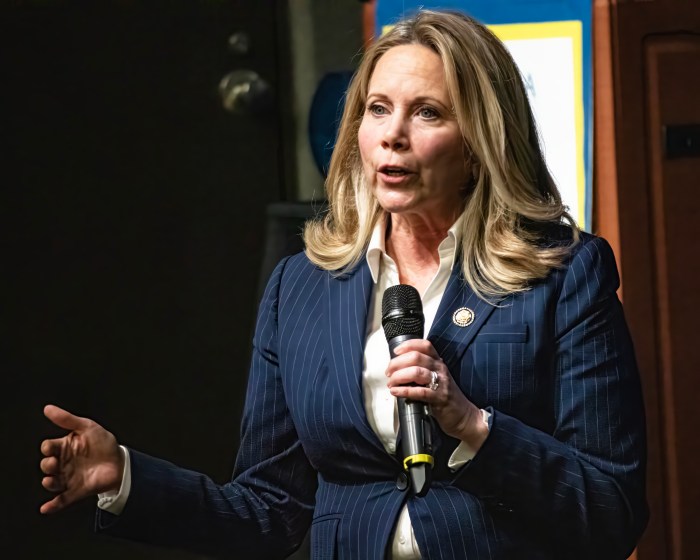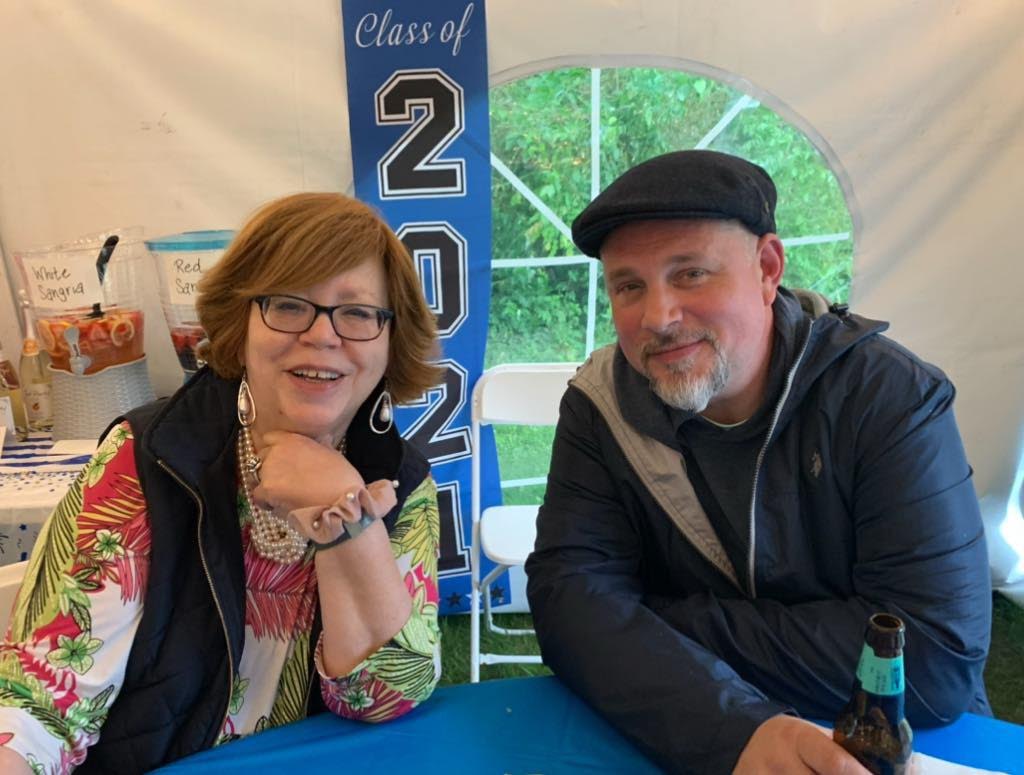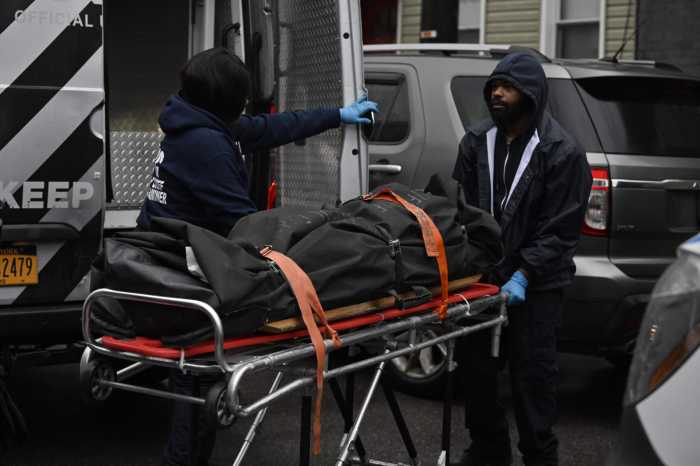A
t 76, Peter Kaisen was the proverbial grandfather. He’d given all the love he had to his grandkids, and he’d make sure his three children, all girls, were well cared for.
But Kaisen also welcomed the soothing pleasures brought on by brief moments of tranquility. Whether it was his famous on-the-whim strolls through the local Home Depot or hours-long sessions tinkering in his garage, Kaisen appreciated those often-fleeting moments in life that few people take time to embrace.
It wasn’t that Kaisen was standoffish or unhappy. In truth, the U.S. Navy veteran saw no reason to wallow in self pity or invite unnecessary attention. He didn’t want to burden other people with his problems. Instead, he delighted in spending time with his wife, three children and seven grandchildren, or swinging by 7-Eleven so he could pick up a coffee for a friend battling a rare cancer associated with the U.S. military’s use of Agent Orange in Vietnam.
More often than not, Kaisen would grab the keys to his Toyota, saunter through his family’s Islip home, and despite a stubbornly achy back from a decades-old auto crash, hop inside, and veer off. A lot of times, Kaisen’s abrupt departures meant he was making the 19-mile journey to the Northport Veteran Affair’s Medical Center, where he sought out-of-pocket treatment for that ailing back, and enjoyed the services they offered to veterans like himself.
“I’m going out,” Kaisen would say, if he offered anything at all. His family was fine with it. That was Pete.
Related: “Report: Denied Service, Veteran Commits Suicide at Northport VA Hospital”
Kaisen lived with his wife Joan, whom he adored. The couple got married on New Year’s Eve more than a half-century ago. They had three kids together—two before Kaisen’s devastating on-duty injury as a member of the Long Beach Police Department. (Kaisen served so long ago that the current police commissioner could not find Kaisen’s name in a police database.) About 20 years ago, the couple became intrigued with the prospects of a quiet life in Florida, so they followed legions of New Yorkers who migrate south. Most never return—or if they do, it’s only for the glorious summer months on LI. But when the Kaisens left Long Island they left a large piece of themselves back home.
Unfulfilled, they returned north.
Through it all, Kaisen never changed. He was a quiet soul, yet he enjoyed adrenaline-packed NASCAR races on TV, which belied his mellow nature. He continued tending to the most minor of chores around the house, like picking up the kitty litter, and was famously unpretentious.
One of the few photos the Kaisen family has of the family patriarch is from this past Christmas: Kaisen, wearing a flannel button-down shirt, his eyes focused intently on the camera, showcasing a beaming smile.
Kaisen was fun and “bouncy” that day, remembers his longtime friend Tom Farley, 69, of Islip, who shared the snapshots of the beloved grandfather’s life included in this story with the Press on behalf of his family in the hopes these treasured tidbits might help others.
Whenever Kaisen was really happy, “The smile goes up about another half-inch,” Farley adds, laughing through the phone.

That was Pete.
Final moments
Last Sunday, Kaisen yet again left the house without warning. As if a ninja in the night, he got into his beloved Toyota and drove away. He didn’t say a word to Joan; she assumed he was in the garage.
Then the phone rang.
“Your husband is very ill,” a caller from the Northport VAMC told Joan, according to Farley, who is serving as the family’s unofficial spokesperson as they grieve the tragedy that has befallen their family. “Bring someone to drive for you.”
Veterans Affairs police were the first to arrive on the scene, followed by Suffolk County police, which was alerted to the hospital at 12:07 p.m.
Joan got to the emergency room, but nobody was there to greet her.
“An old guy told her to knock on the door,” Farley recalls.
A hospital employee emerged.
“Is he gone?” Joan asked.
Stricken by shock and the sadness of losing her husband, Joan somehow summoned the wherewithal to call Farley, and urged him to find a seat.
Farley had met Kaisen about 40 years ago. They both served in the military—Farley in the Army and Kaisen in the Navy—but they only met after their wives became acquainted. Farley was the guy who’d talk nonstop, while Kaisen preferred to listen. Kaisen was seven year’s his elder, but it didn’t matter. They hit it off.
“He was a vet and I was a vet,” explains Farley, who served in Vietnam. It was as simple as that.
From the hospital, Joan told Farley everything that she knew—that Kaisen went to the VA seeking help. Then he killed himself.
“Your husband is very ill, bring someone to drive you.”
The details that have emerged regarding Kaisen’s final moments are sparse, and grim.
According to an explosive report in The New York Times, Kaisen was turned away at the emergency room—the only building open on Sundays, according to Farley—then walked to his Toyota and turned a .38 Smith & Wesson on himself.
A hospital employee discovered Kaisen’s body a short distance from his car, near a wooded area. As far as the family knows, no one witnessed Kaisen take his own life.
One apparent whistleblower was so distressed that Kaisen was allegedly turned away from the emergency room that they told the Times, “Someone dropped the ball.”
The VAMC says there’s no evidence Kaisen ever made it to the emergency room.
Farley, who is a true believer in the VA’s mission, is skeptical that Kaisen would drive all the way to the Northport VAMC only to end his life.
“He went there for help,” he insists.
Kaisens’ family believes he was suffering from some form of depression, but there’s no indication he was receiving treatment for mental health. Apparently, he appeared lethargic. Moving a little slower. But nobody thought anything of it—after all, Kaisen was 76 and he had been struggling through a nagging back injury and the associated effects of a deluge of painkillers for decades.
Related: “Veteran Who Died at Northport VA Was Loving Family Man, Relative Says”
Injured in the line of duty
In the ’60s Kaisen joined the Long Beach Police Department and had been on the job for nine years when a speeding driver traveling the wrong way on a one-way street T-boned his police vehicle. Kaisen survived, but he would spend the rest of his days battling a debilitating back injury. Kaisen’s career as a police officer ended abruptly. He retired, earned workman’s comp and spent his years raising a family.
The on-duty crash not only relieved Kaisen of a career, but it meant one of his other joys in life was over.
On weekends, Kaisen would take the family sedan to the drag racing track in Riverhead, pay the $10 entry fee, and go for a spin.
“That was his thing,” Farley says with a laugh.
That was Pete.
The family has gone through the tough part of explaining to Kaisen’s seven grandchildren, who range from 10 to 18 years old, what happened to “Pop.”
Farley told them what their grandfather did may make life better for the next veteran who goes to any VA hospital around the country desperate for help.
“He went there for help.”
Farley credits the VA for saving his own life. He is fond of saying that “90 percent” of VA hospital employees are good people.
“He met a 10-percenter,” he says of his friend, if the whistleblower account is true.
The family simply wants to uncover the truth.
“Nobody is on a head-hunting mission,” Farley says. “We just don’t want it to happen again.”
Kaisen’s story, which the family is monitoring through the media, has already infused itself into national politics. Some observers are viewing the incident as yet another indictment of the VA health system. And Reps. Peter King (R-Seaford) and Steve Israel (D-Dix Hills) wasted no time sending a joint letter to the heads of U.S. Department of Veteran Affairs and the FBI urging a “thorough investigation.”
For the people who never met Kaisen, his long life is being condensed into a few brief moments. He’s now the military veteran who died seeking help. Another vet to succumb to suicide. Another vet failed by the American people and the bureaucracy that runs the very department served to advocate and protect them. Another vet we mourn.
But to the family, Kaisen is more than that. And they paid tribute to their hero in the best way they knew how: with brief words for a man who was few of them.
“Devoted husband, beloved father, grandfather, cherished friend and brother.”
That was Pete.





























